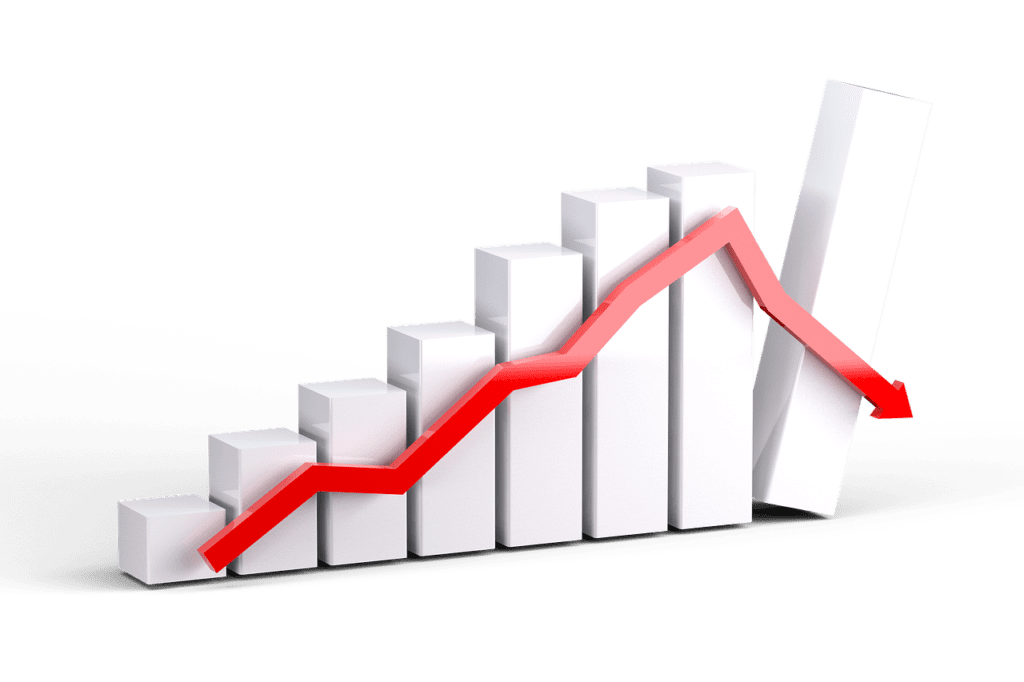What Property Investors Can Learn From The 2008 Economic Crisis?
The global economic crisis of 2008 is a cautionary tale for anyone considering investing in property. As investors in property, we are all aware of how quickly prices can go up and down. We saw it happen when house prices fell by 15.9% in 2008 – the biggest annual drop since the society began publishing its index in 1991. This was followed by a gradual recovery, but it was an event that changed the world of finance forever. Now 12 years later, is history repeating itself? With the UK economy still feeling the effects of Brexit and Covid-19, what can we learn from past experiences to better position ourselves for the future? To answer these questions, let’s take a look at what happened during the 2008 economic crisis and how it impacted the property investment market.

The Aftermath of 2008
2008 was a tumultuous year as the financial crisis swept across the world. This financial crisis was precipitated by a variety of factors, namely high levels of debt, low interest rates, and irresponsible lending practices. Banks were willing to offer mortgages even to those with troublesome credit histories. As many could no longer pay back their loans and were forced to sell their properties in order to settle their debt, house prices plummeted throughout the UK leaving investors with considerable losses. The 2008 financial crisis was an incredibly trying time that has left lasting implications for our economy today.
The Impact of the Global Economic Crisis on Housing
During the 2008 economic crisis, home values dropped significantly due to a decrease in consumer confidence and increased unemployment rates. This resulted in people being unable to afford their mortgage payments leading to a spike in foreclosures throughout the country. This caused rippling effects that spread through real estate markets and eventually resulted in a drop in home values nationwide.
Many investors were hit hard by this downturn as they were forced to sell at prices below what they had originally purchased for or worse yet—sit on properties with negative equity for years until the market recovered. However, there are ways for investors to protect their portfolios from future downturns such as diversifying their investments across multiple asset classes or using hedging strategies like futures contracts or options trading. Additionally, investors should always be aware of macroeconomic trends and keep track of any warning signs that could indicate an impending recession or financial crisis similar to what occurred back in 2008.
The unfortunate reality these days is that house repossessions are becoming more common, especially due to the circumstances of 2020. In fact, data has shown a steady rise in house repossessions since the onset of the pandemic. Even worse, many mortgage providers have had to work through an accumulation of cases over the year that they have yet to address. It’s become clear that with rising unemployment levels and financial instability, it is hard for several people to make ends meet. Unfortunately, their hardships could mean sacrificing some of life’s biggest investments like their home and as a result, more cases of house repossessions are popping up throughout the world.
The Impact of Brexit and Covid-19
Since then, many investors have been cautious about investing in property due to ongoing economic uncertainty caused by Brexit and Covid-19. Both have had an impact on the UK economy, with some sectors (such as hospitality) being hit particularly hard. However, while there are undoubtedly risks associated with investing in property right now, there are also opportunities that savvy investors can take advantage of – such as lower house prices and more attractive mortgage deals.

Why Property Investment Can Be Profitable
Despite some short-term uncertainty in the market, there is still potential for long-term profit from property investment. Property prices tend to rise over time and if you buy at the right time you can benefit from capital appreciation when you come to sell your property later down the line. Additionally, investing in rental properties can provide a steady source of income through rent payments from tenants – though this will depend on whether or not you can find reliable tenants for your properties.
Strategies For Property Investment During A Recession
When investing during a recession it is important for property investors to remain flexible and adaptable so that they can quickly adjust their strategy based on changing conditions within the economy or real estate market. For example, if prices start dropping rapidly then investors should focus on short-term strategies such as flipping houses or buying distressed properties at discounted prices rather than long-term buy-and-hold strategies which would require them to wait out any further price drops before they can realize a return on investment (ROI). Additionally, it is important that investors remain patient when making decisions since investing during an economic crisis requires a great deal of research and thought before taking action due to heightened risk levels associated with such periods of uncertainty.

Best Next Steps
Understanding what happened during the last major economic crash has given property investors valuable insight into how best to prepare for another potential downturn in 2023 and beyond.
Investing in property after the 2008 economic crisis has had its risks but also its rewards. While it is wise to proceed cautiously and do your research before making any investments, there could be opportunities out there that could turn into long-term profits if done correctly.
By diversifying our investments across multiple asset classes, keeping track of macroeconomic trends and warning signs signalling an impending recession, remaining patient when making decisions about investments during uncertain times and leveraging flexible strategies such as flipping houses or buying distressed properties at discounted prices—we have taken steps towards protecting our portfolios from potential losses while also positioning ourselves for success if markets take a dip, and then make a recovery in the not so distant future.
Whether you’re an experienced investor or just starting out on your journey into real estate investment – remember that knowledge is power and doing your due diligence is essential! Good luck!



